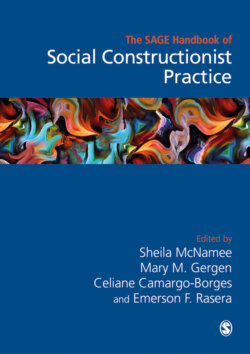Читать книгу The Sage Handbook of Social Constructionist Practice - Группа авторов - Страница 163
На сайте Литреса книга снята с продажи.
Social Constructionist Informed Micro- Mezzo-, and Macro-Level Practice
ОглавлениеSocial construction, as applied in social work practice, is not a set of techniques but a way of foregrounding relational understandings. Social workers and their clients are understood as existing in a mutually influencing, meaning-making relationship. Micro practice is re-envisioned from the achievement of traditional goals of client behavioral change brought about by behavioral reinforcement, cognitive processing, or other clinical mechanisms to transformational change in which clients re-construct and experience themselves and their worlds differently through collaborative social worker–client relationships. Macro and mezzo practice is based in collaborative meaning-making about how problems and solutions to those problems will be understood. In this section we use practice examples to demonstrate these concepts. Because we view social construction as a sense-making framework rather than a prescriptive, method-oriented blueprint, we use the phrase ‘social constructionist informed’ social work practice. In this case, social construction is the guiding framework in the collaborative co-construction of problems and potential solutions. While there are practice models used within social work that are congruent with social constructionist ideas, for example, solution-focused (de Shazer and Dolan, 2012), possibility (O'Hanlon and Bertolino, 2013), and narrative (White and Epston, 1989), we focus more generally on how a social constructionist informed practice might guide social workers. Key social constructionist ideas that inform practice include that there is no inherent meaning in events, objects, or relationships; that meaning is applied to events, objects, and relationships; that meaning is controlled by language relationships; and that language and meaning are created in relationships (Hall, 2012).
